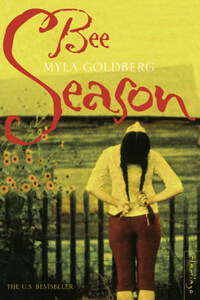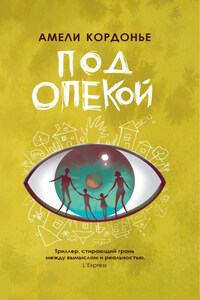AT PRECISELY 11 A.M. EVERY TEACHER in every classroom at McKinley Elementary School tells their students to stand. The enthusiasm of the collective chair scrape that follows rates somewhere between mandatory school assembly and head lice inspection. This is especially the case in Ms. Bergermeyer’s fourth/fifth combination, which everybody knows is where the unimpressive fifth graders are put. Eliza Naumann certainly knows this. Since being designated three years ago as a student from whom great things should not be expected, she has grown inured to the sun-bleached posters of puppies and kittens hanging from ropes, and trying to climb ladders, and wearing hats that are too big for them above captions like “Hang in there,” “If at first you don’t succeed …”and “There’s always time to grow.” These baby animals, which have adorned the walls of every one of her classrooms from third grade onward, have watched over untold years of C students who never get picked for Student of the Week, sixth-place winners who never get a ribbon, and short, pigeon-toed girls who never get chased by boys at recess. As Eliza stands with the rest of her class, she has already prepared herself for the inevitable descent back into her chair. She has no reason to expect that the outcome of this, her first spelling bee, will differ from the outcome of any other school event seemingly designed to confirm, display, or amplify her mediocrity.
Ms. Bergermeyer’s voice as she offers up spelling words matches the sodden texture of the classroom’s cinder block walls. Eliza expects to be able to poke her finger into the walls, is surprised to find she cannot. She can certainly poke her way through and past her teacher’s voice, finds this preferable to being dragged down by its waterlogged cadences, the voice of a middle-aged woman who has resigned herself to student rosters filled with America’s future insurance salesmen, Amway dealers, and dissatisfied housewives.
Eliza only half listens as Bergermeyer works her way down the rows of seats. In smarter classrooms, chair backs are free from petrified Bubble Yum. Smooth desktops are unmarred by pencil tips, compass points, and scissors blades. Eliza suspects that the school’s disfigured desks and chairs are shunted into classrooms like hers at the end of every quarter, seems to remember a smattering of pristine desks disappearing from her classrooms over spring and winter breaks to be replaced by their older, uglier cousins.
Bergermeyer is ten chairs away. Melanie Turpin, who has a brother or sister in every grade in the primary wing, sits down after spelling TOMARROW, which even Eliza knows is spelled with an O. Eliza also knows that LISARD is supposed to have a Z and that PERSONEL needs a second N. And suddenly the bee gets more interesting. Because Eliza is spelling all the words right. So that when Ms. Bergermeyer gives Eliza RASPBERRY, she stands a little straighter, proudly including the P before moving on to the B-E-R-R-Y. By the time Bergermeyer has worked her way through the class to the end of the first round, Eliza is one of the few left standing.
Three years before Eliza’s first brush with competitive spelling, she is a second-grader in Ms. Lodowski’s class, a room that is baby animal poster-free. Eliza’s school universe is still an unvariegated whole. The wheat has yet to be culled from the chaff and given nicer desks. There is only one curriculum, one kind of student, one handwriting worksheet occupying every desk in Eliza’s class. Though some students finish faster than others, Eliza doesn’t notice this, couldn’t tell if asked where she falls within the worksheet completion continuum.
Eliza is having a hard time with cursive capital Q, which does not look Q-like at all. She is also distracted by the fact that people have been getting called out of the classroom all morning and that it doesn’t seem to be for something bad. For one thing, the list is alphabetical. Jared Montgomery has just been called, which means that if Eliza’s name is going to be called, it has got to be soon. The day has become an interminable Duck Duck Goose game in which she has only one chance to be picked. She senses it is very important that this happen, has felt this certainty in her stomach since Lodowski started on K. Eliza assures herself that as soon as she gets called out her stomach will stop churning, she will stop sweating, and cursive capital Q will start looking like a letter instead of like the number 2.
Ms. Lodowski knows that second grade is a very special time. Under her discerning eye, the small lumps of clay that are her students are pressed into the first mold of their young lives. A lapsed classics graduate student, Ms. Lodowski is thrilled that her teaching career has cast her in the role of the Fates. Though she couldn’t have known it at the time, her abbreviated classical pursuits equipped her for her life’s calling as overseer of McKinley Elementary’s Talented and Gifted (TAG) placement program.








